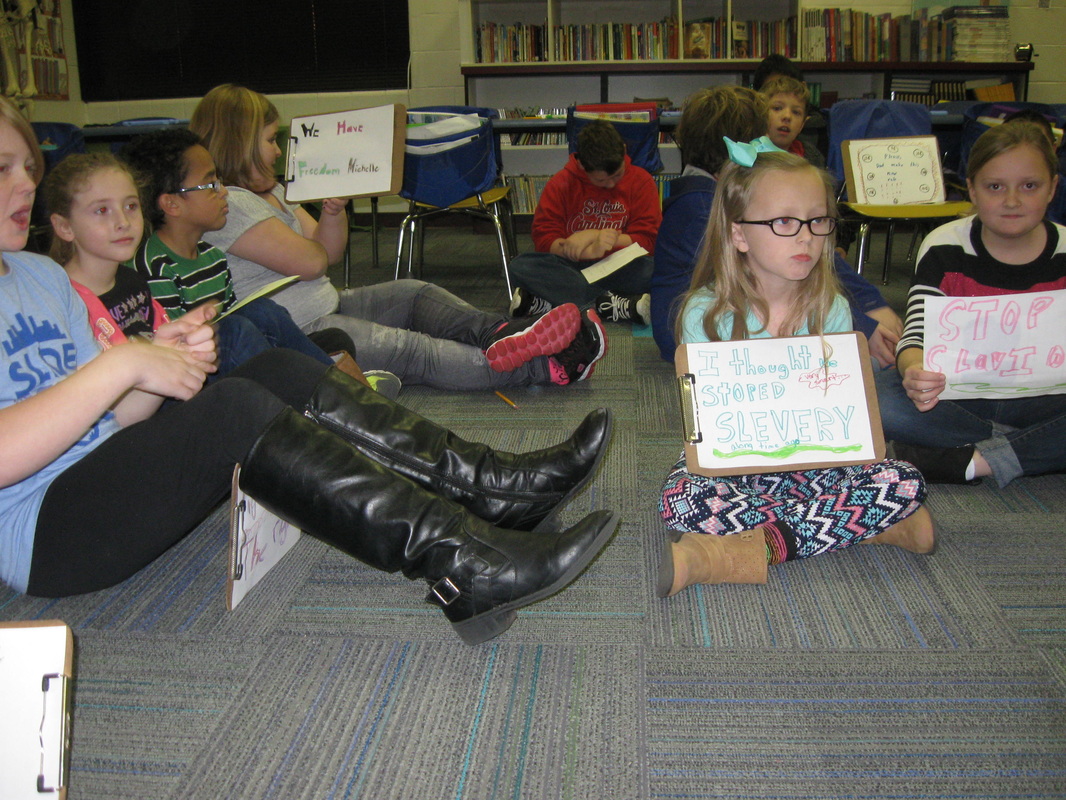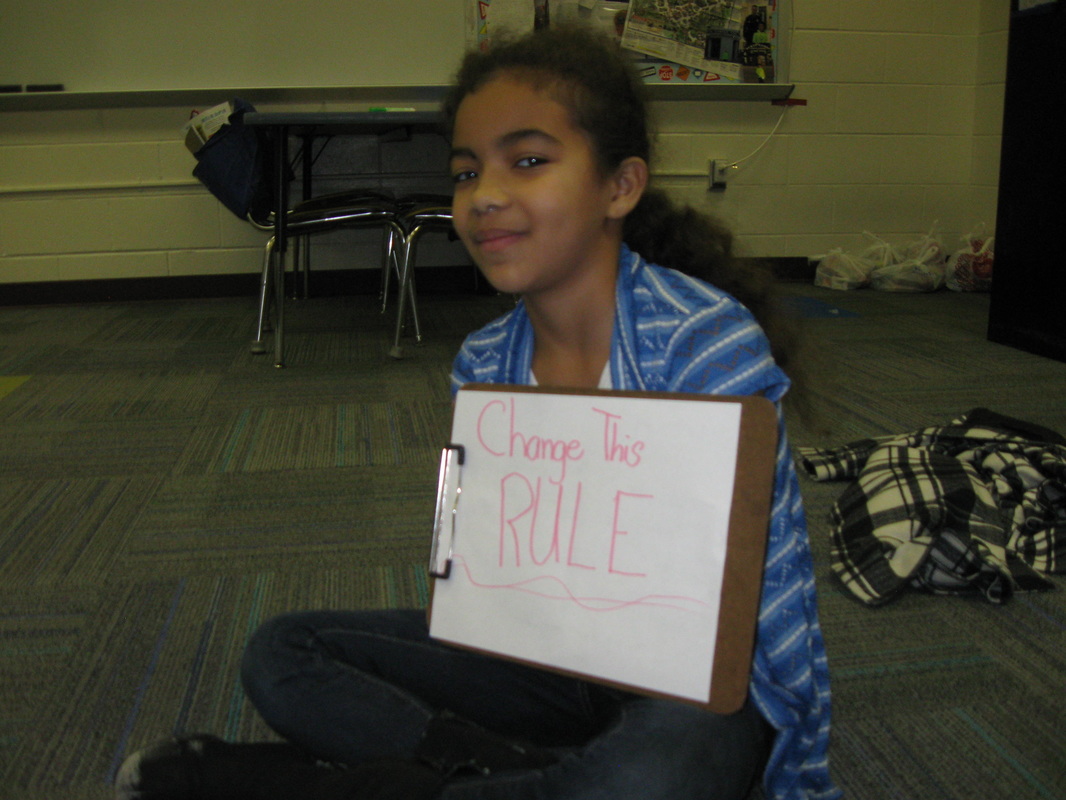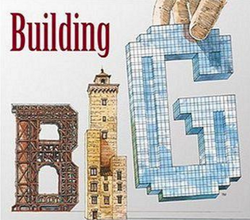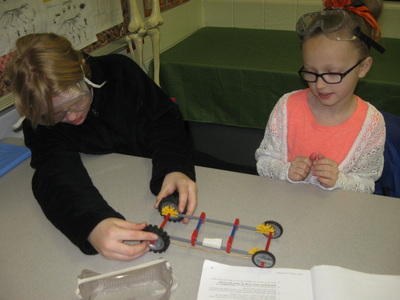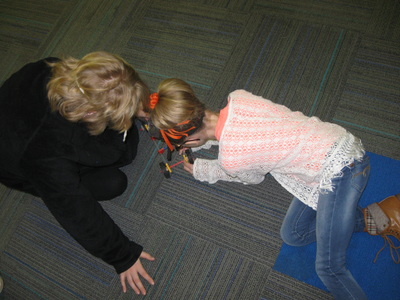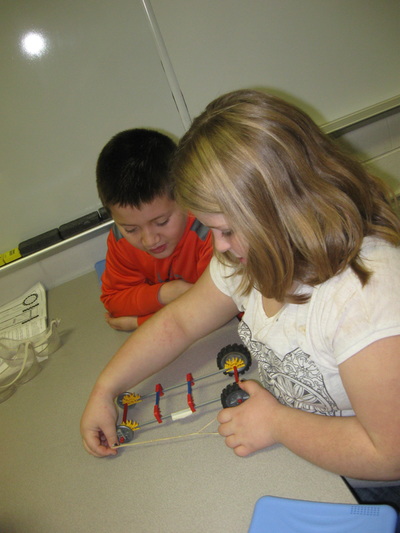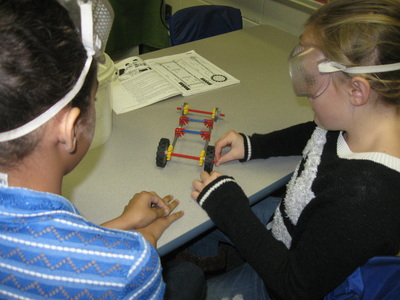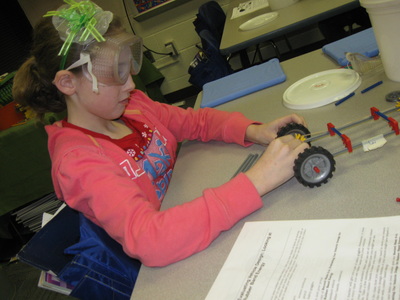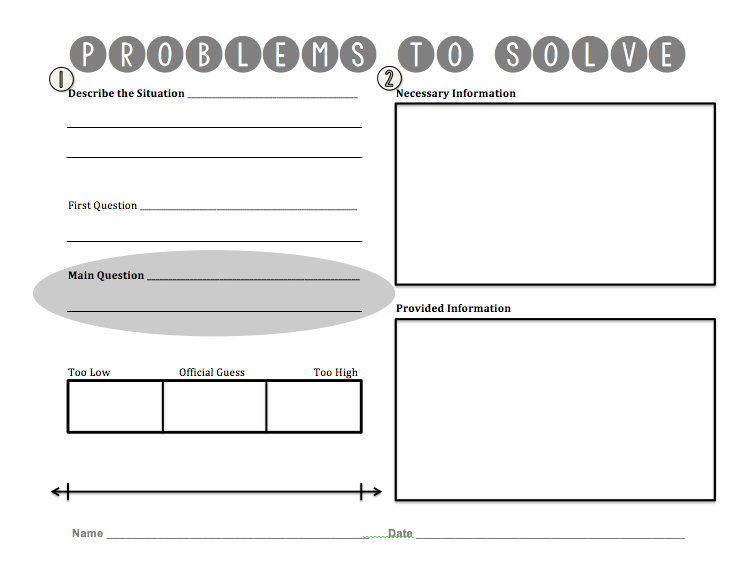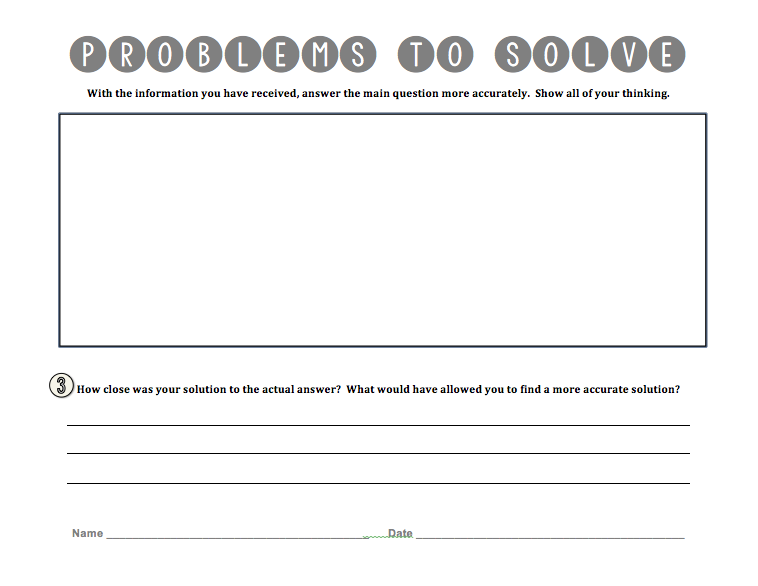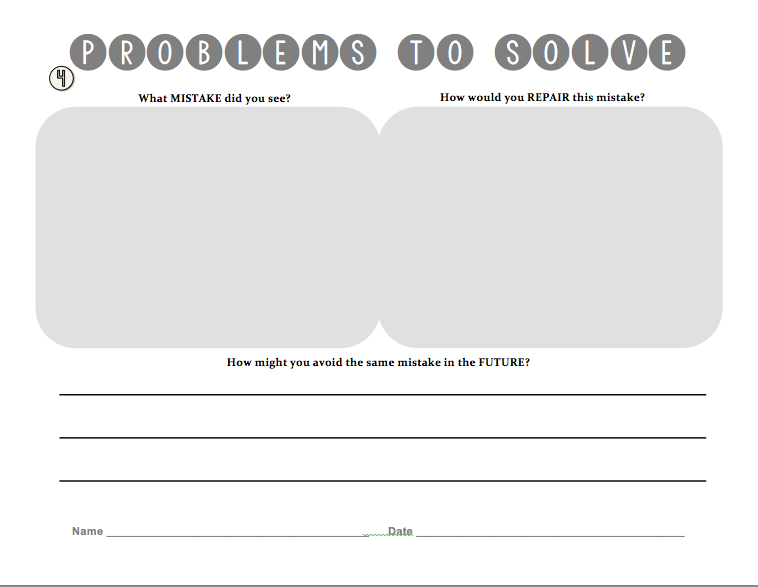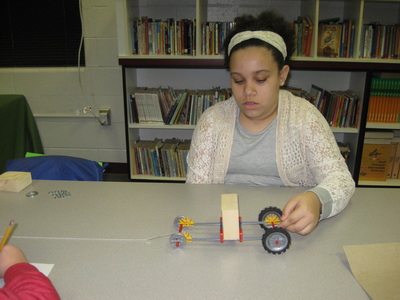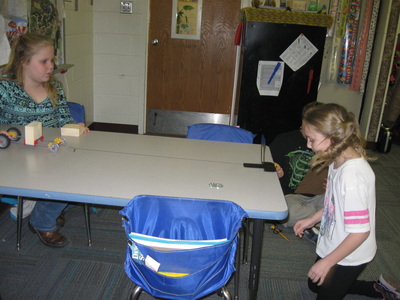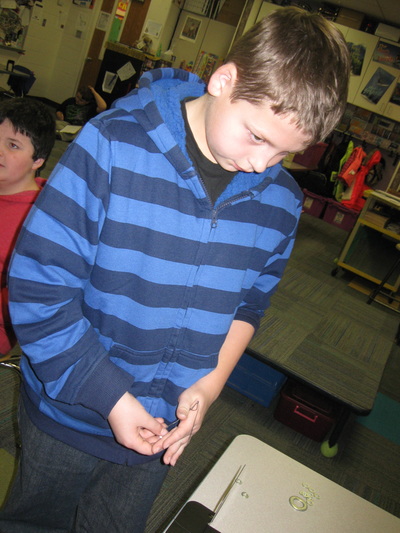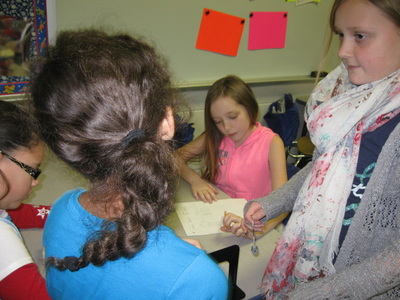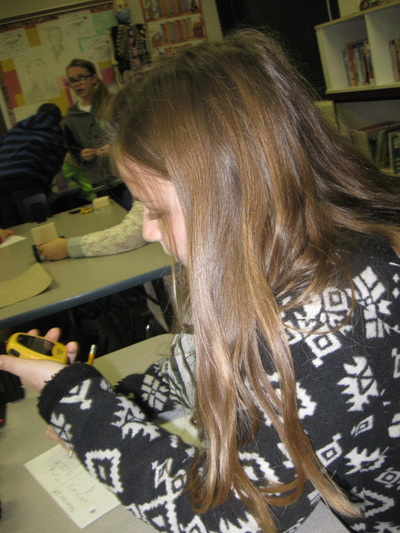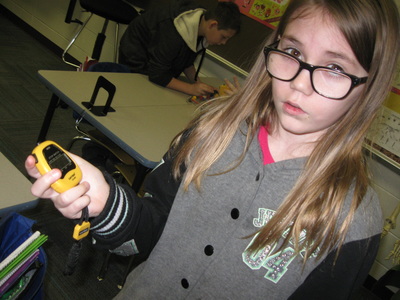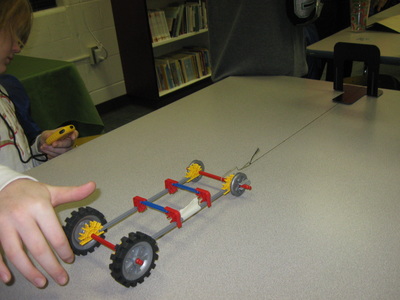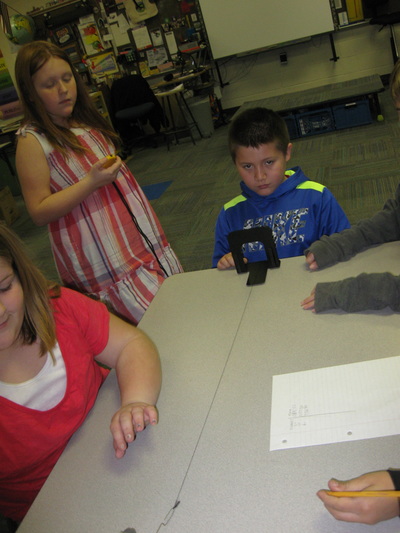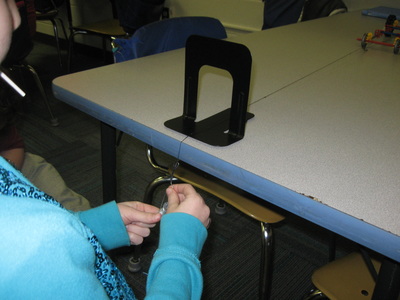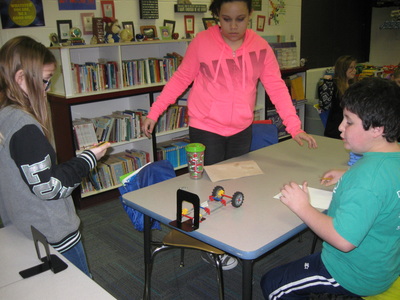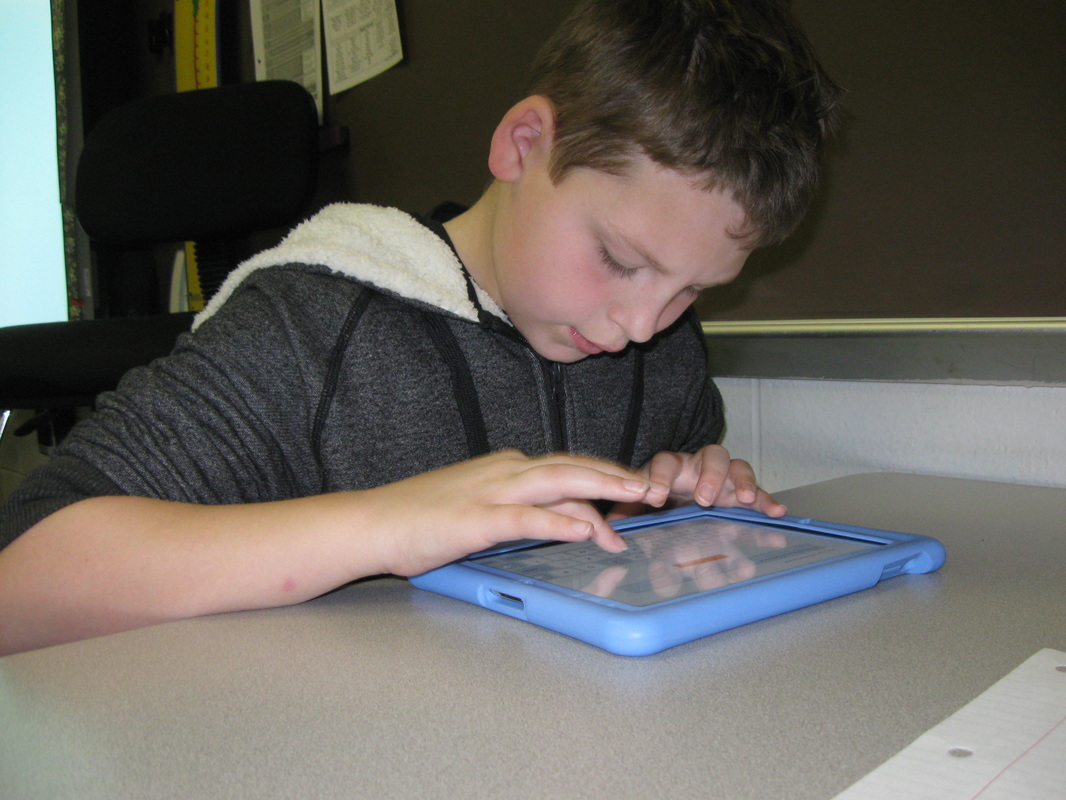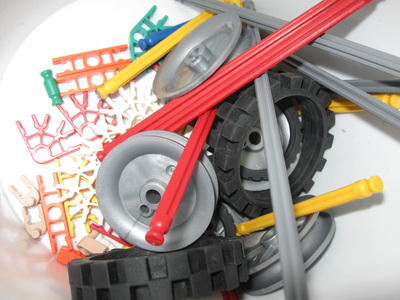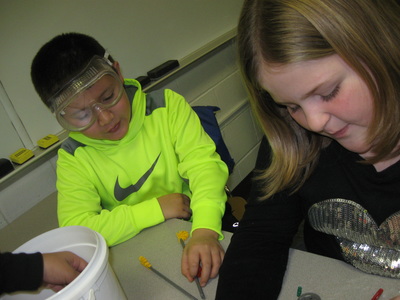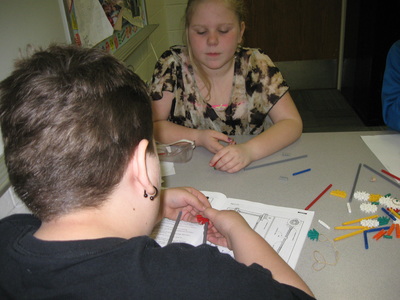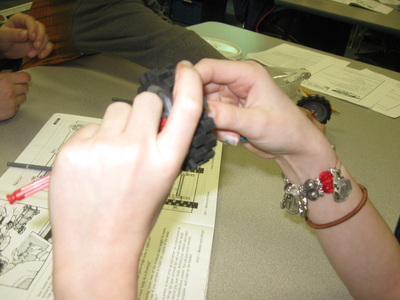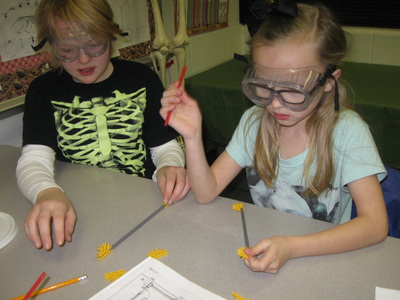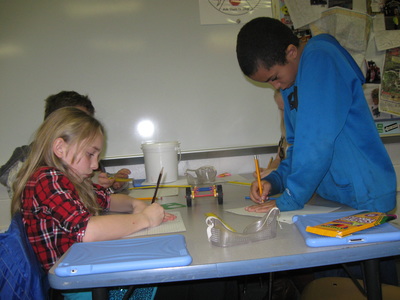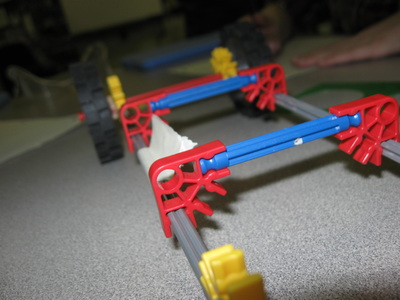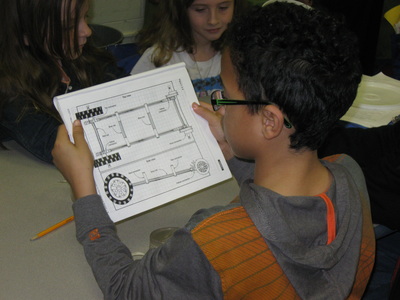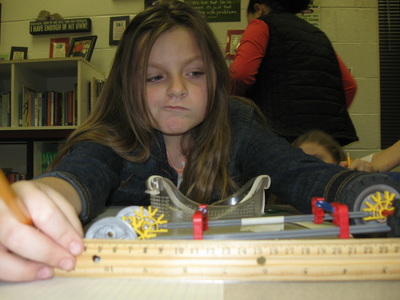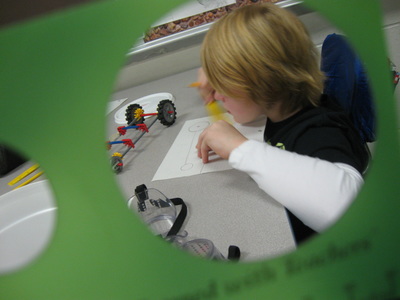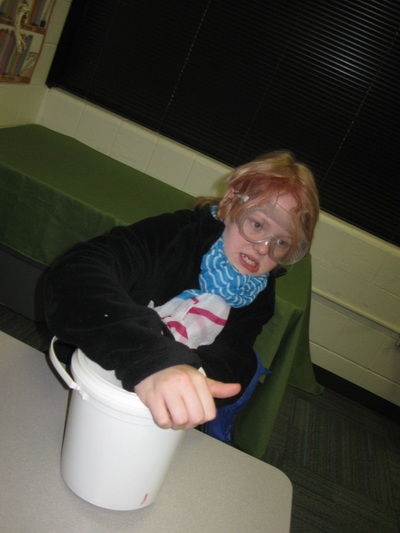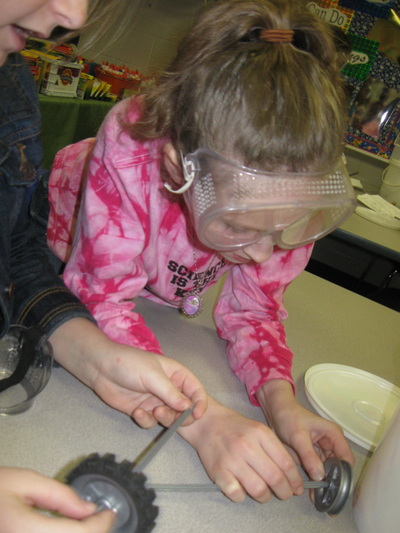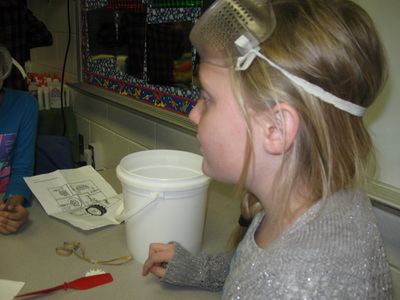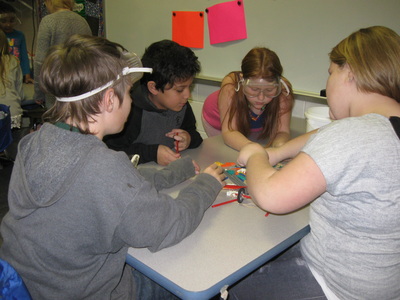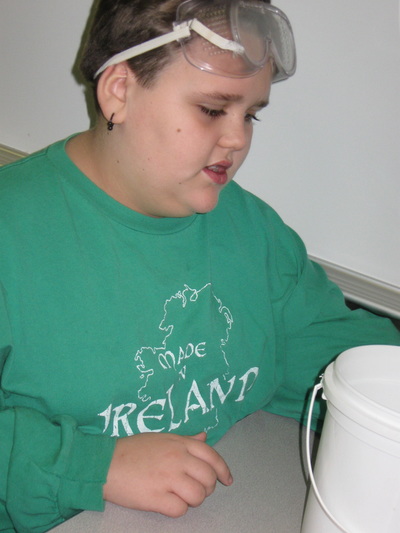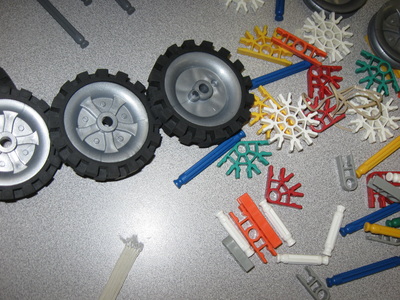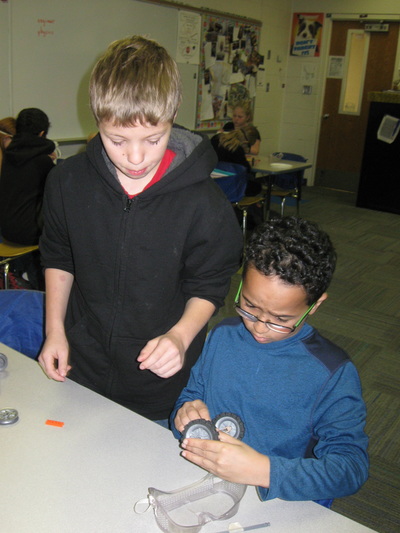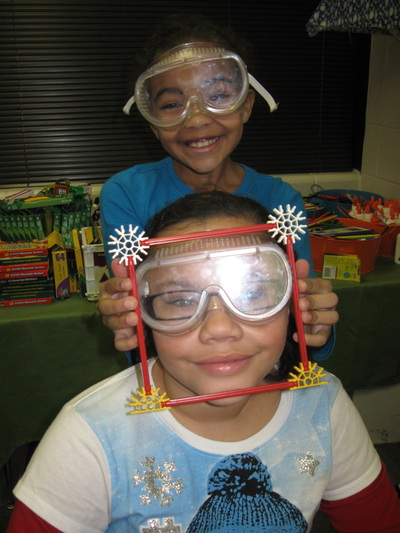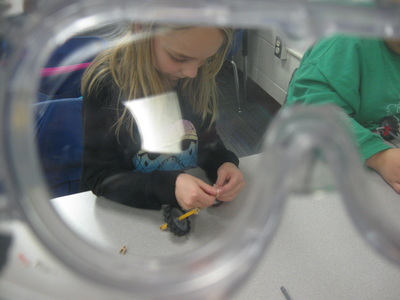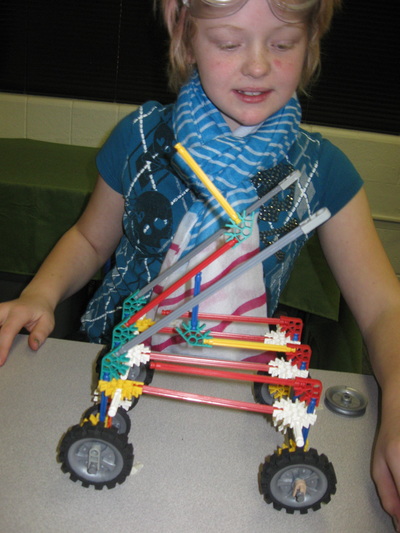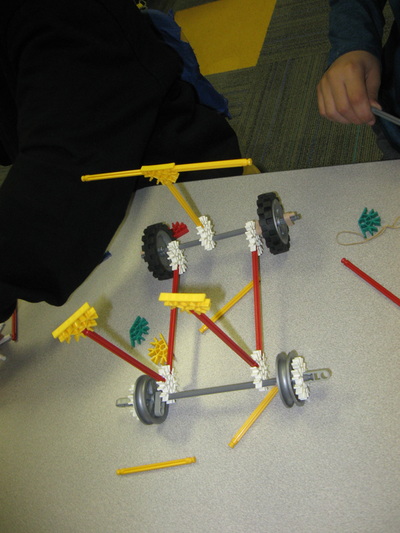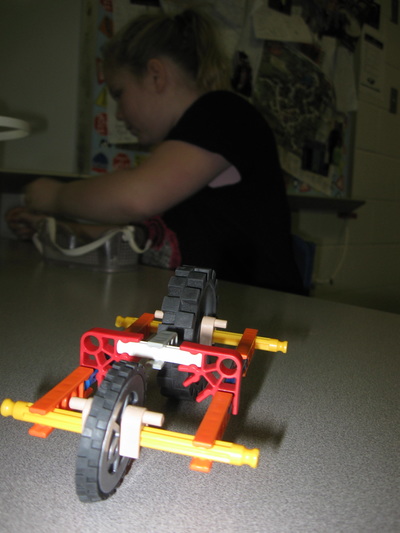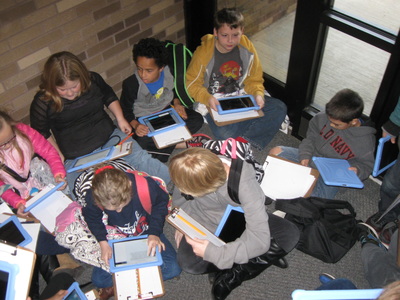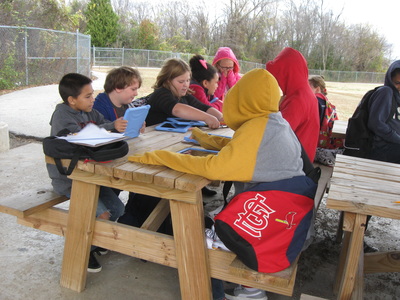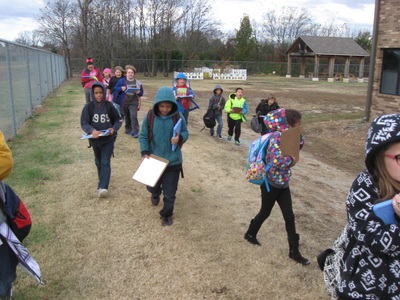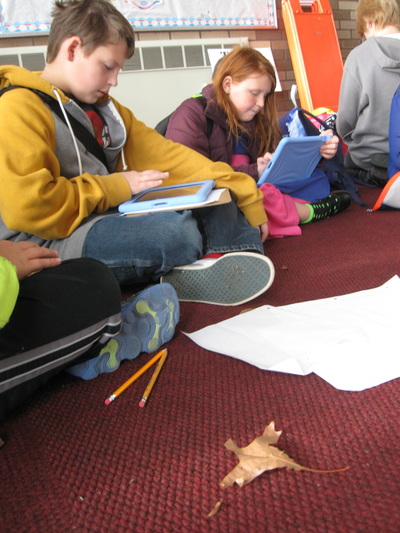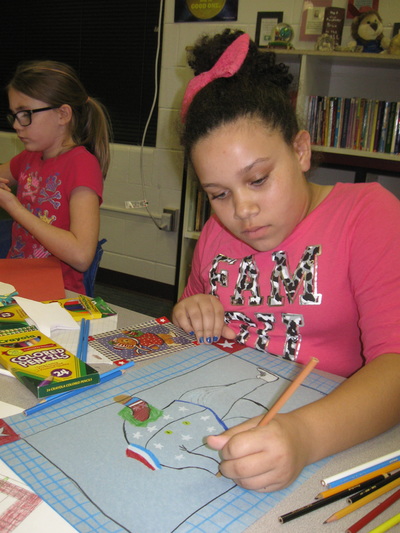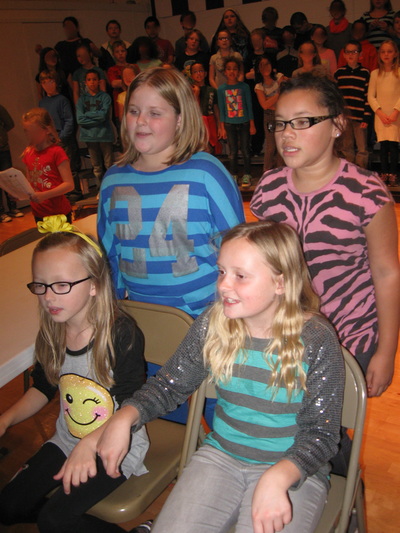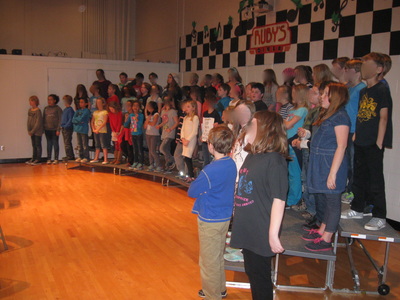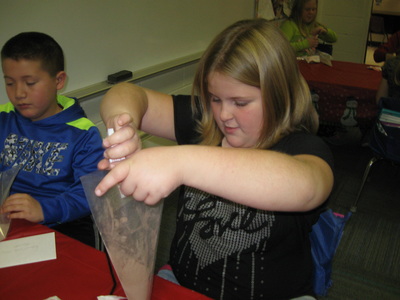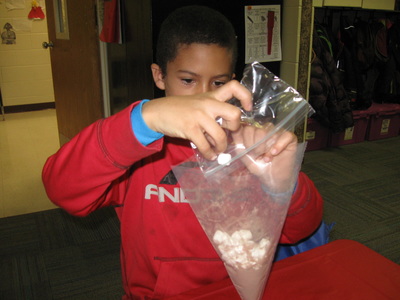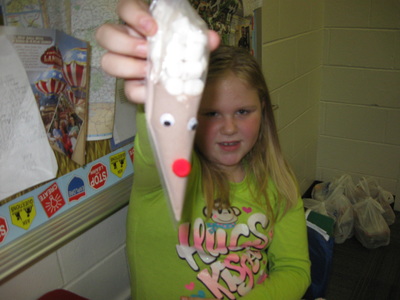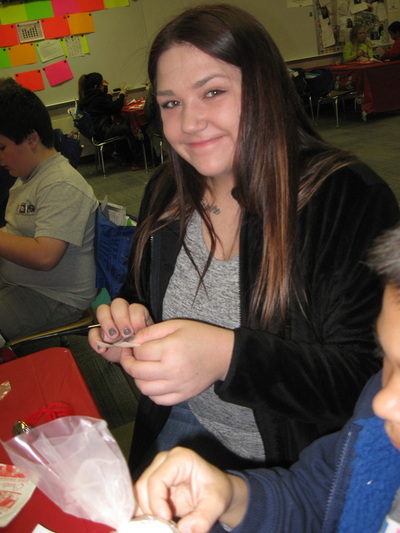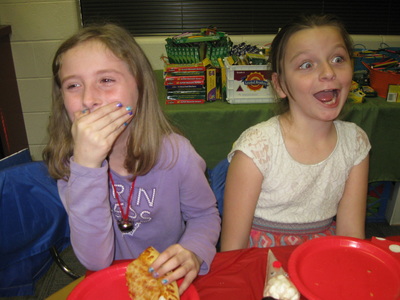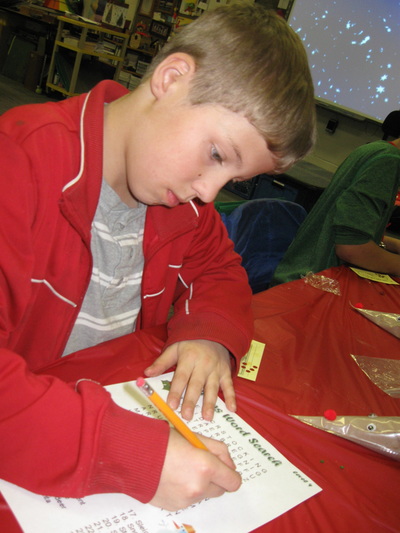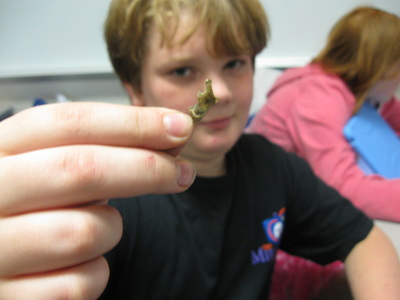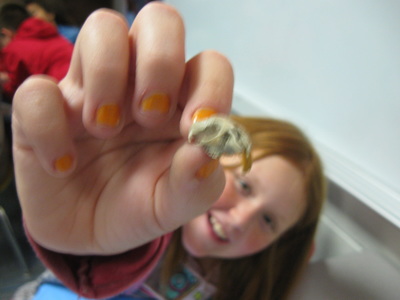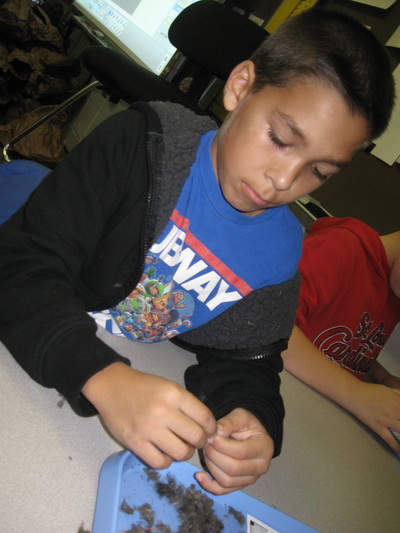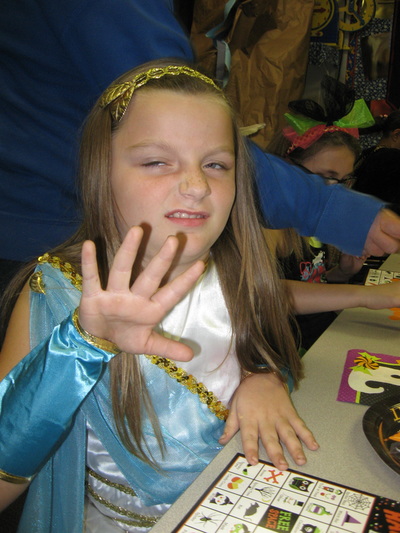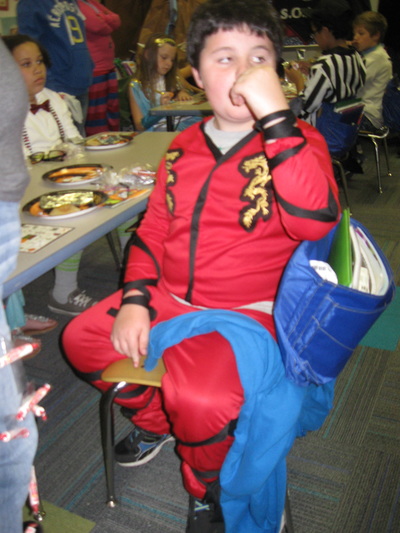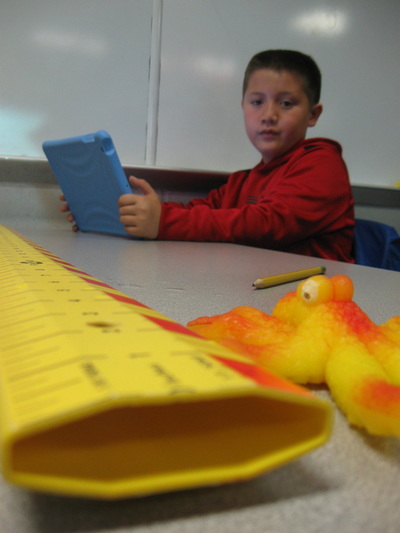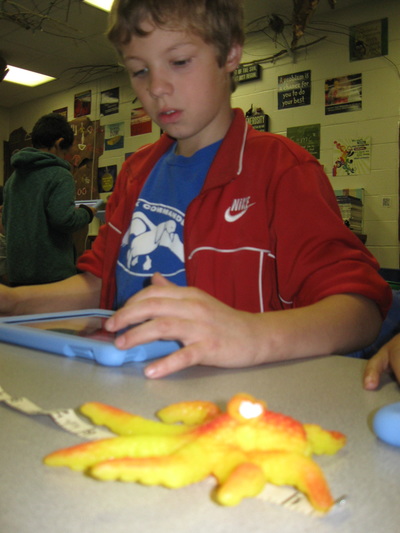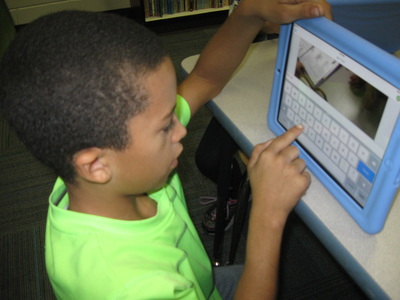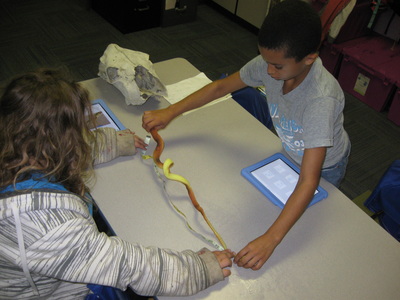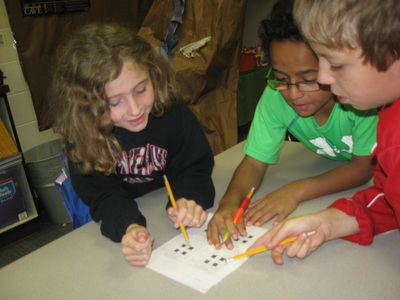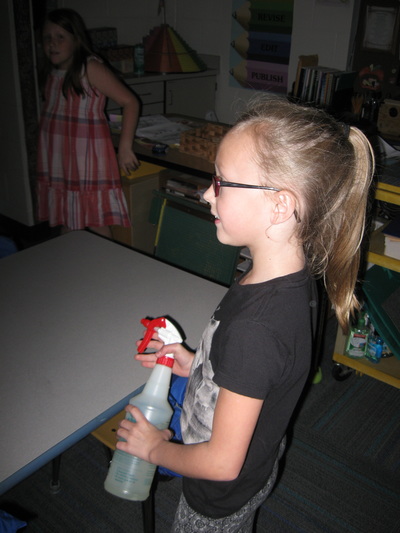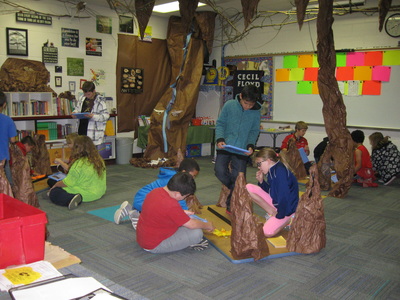| | As you know, Monday is Martin Luther King Day in the United States. As a result, students are out of school. On Friday, we began our day with an absurd simulation, including writing letters of protest, making signs, marching in our classroom, and conducting a sit-in. Protesting what, you ask? The premise: The night before, I (supposedly) received a call telling me that all single-digit children would no longer be allowed to sit in chairs, while the 10-year-olds could keep the same privilege. Some students wanted to sit in solidarity with their nine-year-old peers. As I mentioned, the simulation was absurdly unbelievable, but the class seemed to buy in and go with it. They took the pretense seriously, and they courageously took a stand for the equality of their peers. Afterward, we discussed the history of Civil Rights in America. It is far from the romantic account students have likely heard up until now. |
|
0 Comments
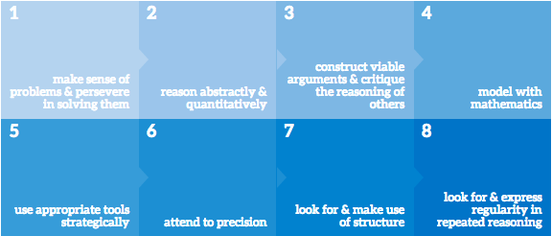 In an attempt to address the eight Math Practices in the graphic at left, I will expose the class to One Problem to Solve (OPTS), one of which is displayed below. Students will discover and create their own problems, while being guided by the teacher. Watch this video, and describe the situation:
What information is necessary in order to answer our central question? What information is provided above? What tools might you need to solve the problem? What strategies might you use? Solve to answer the central question. How close was the actual solution to your estimate? What would have helped you achieve a more accurate estimate? Did you make any mistakes along the way?
Fix them. How might you avoid such a mistake in the future? Explain your work to someone else? Did s/he do the work differently? Can you explain the process using the other person's methods? No it's not solar. It isn't wind power. And our vehicles are no longer allowed to be powered by a drop-weight gravity system. Wednesday, we introduced rubber bands to the groups and discussed the difference between potential and kinetic energy. Teams worked to attach their rubber bands in various ways to see how far they could make their cars travel across our carpet.
In one grand gesture, students will be asked what information they need to answer the question. Some such information may then be provided so students may finally solve the problem. Finally, I ask the class to identify errors and find ways to avoid the same errors in their next attempts. The last sheet, though not always needed, serves as a kind of debriefing for the project. I attempted to make the worksheets somewhat attractive, while at the same time spacious and practical. I would like to take the sheets to another level by requiring groups to share their solutions. Afterward, they will attempt to explain the method used by another group. The entire process capitalizes on curiosity and challenges all to make progress and is designed to keep me on my toes and on the right track as a facilitator. Hat tips to the following (from whom I devised my own methods and guiding handouts):
Dan Meyer, Robert Kaplinsky, Dane Ehlert, and Andrew Stadel.
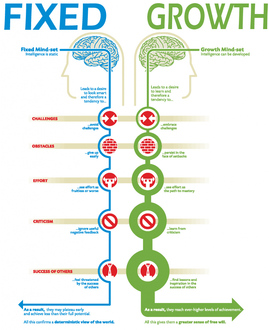 Click to Enlarge Click to Enlarge Some of the best educational news out there has to do with Carol Dweck's Growth Mindset. It's the best out there because it makes sense. We might have, at one time, called it common sense, but common sense has since become uncommon. It is refreshing when we see it making a comeback. Growth Mindset is diametrically opposed to something Dweck labels as Fixed Mindset, which sadly, is a thing we often see in the parents of our students. Not you, Dear Reader; of course, I'm not talking about you. I've sat in a number of parent conferences and special education meetings and listened to parents say something like this: "Well, I wasn't any good at Math, so I wouldn't expect my son to be good at Math either," or, "She comes by it honestly; her mom was slow to pick up on Math, too." Those parents don't realize it, but they have just reinforced a fixed mindset. Fixed Mindset means an individual does not have control of learning, that said individual can only learn at a set rate, can only learn at a set level, and can only be so smart. It means once a threshold is reached, it may not be surpassed. Contrasting to that, the Growth Mindset gives the individual hope for something greater, saying that there is always room for improvement and the ability to improve. For as long as I can remember, educators have uttered the following: 1. All Students Can Achieve at High Levels. Educators have uttered such, but secretly held back opinions that said otherwise. "Why that's just Eddie," they might think. "He'll never be able to do what Sara can do." What we must understand is that a high level may not be the same for every student. Achieving, in the current educational climate, means a student is continually improving - not that s/he's at the head of the class. Honestly, the current educational climate, in this sense, still bothers me - I still want to know where my children stand in comparison to their peers - but I can understand the concept. It's nice to see this statement make its way back into popular thought: 2. Students’ Ideas about their Ability Determine their Learning Pathways and Math Achievement. There are still some residual beliefs, triggered by Common Core initiatives, that students must learn one way to work through given problems. I don't think I could ever buy into that; the magic of Math is that solutions can be found in several different ways. My challenge, now, is to revisit this concept. I think I've gotten into the habit of breaking down problems too much for students. Now I need to encourage them to ask their own questions and apply their own strategies to solve problems. I need to put more real problems in front of them, wind them up, and watch them go. My challenge is to empower my students with the tools they need to solve those problems, while at the same time not leaving them to flop around like fish our of water. I still must provide them with the structures they might need to develop their higher-order thinking. Next, for Apollo 13, mistakes were not an option, but in our classroom they absolutely are. Since we all make them, we need to learn how to deal with them: 3. Mistakes and Struggle are Extremely Important for Learning. With a Fixed Mindset, mistakes are inevitable, but unacceptable. The learner looks at a mistake...and stops all progress. Rather than admit to the mistake, approach it, learn from it, and work past it, s/he completely freezes and refuses to progress. On the other hand, the learner with a Growth Mindset is almost giddy to find a mistake: s/he looks at mistakes as challenges and wonders how to conquer them. One of the hardest things to accept might be the next one: 4. Mathematics should be Dissociated from Speed. For me, there is still something to be said for fluency, not only for reading, but for basic Math Facts. There is also something to be said for meeting deadlines. Literacy and deadlines are absolutely real. Stress on the job is absolutely real. I'm not willing to let go of providing certain stresses for my students. The timed quizzes aren't going away, but at the same time they are only a part of what I expect. Outside of the tests with time limits and ultimate deadlines for getting assignments completed, I must continue to be patient with students and cognizant of individual needs. Finally, I need to follow up on completed assignments, understanding that the life of an assignment does not end when it is turned in: 5. Teachers Messages are Hugely Powerful. 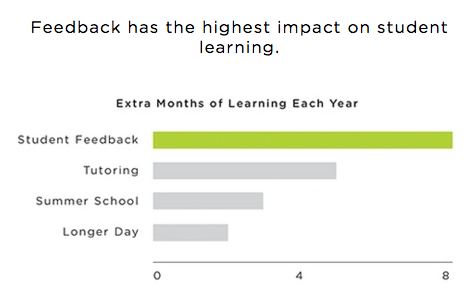 Research clearly shows that one of the greatest ways to advance students is to give productive feedback. I think technology may help me with this. By using an iPad application like classkick, I should be able to see students working live and assist them with feedback along the way, without hovering over them one at a time. Such an app also allows students to ask for help (from the teacher directly and from peers anonymously) privately within the program. Feedback, of course, is more than just handing out attaboys; feedback involves giving the kind of criticism that encourages students, individually, to improve. I improve when I help them improve. Our family will SOAR as lifelong, innovative thinkers
who are compassionate, productive citizens. 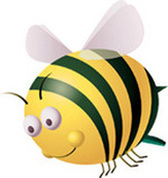 We will soon find ourselves in the process of determining the top two spellers from each fourth and fifth grade classroom to compete in the school spelling bee. The winner of that bee will be eligible to compete in the regional spelling bee, help at Missouri Southern State University (MSSU), during Spring Break. If you want to prepare, or help someone else prepare, the words are provided on the Joplin Globe's Newspaper in Education website. Please note, competitors at the regional level will be responsible for studying all grade level words (plus the lists of hard, harder, and hardest words).  MICHELLE, a student in my class a few years ago, qualified for and conquered the regional competition at MSSU. She is still featured in the photograph at the top of the Spelling Bee webpage. It's interesting to note that more than a couple of Hoggatteers have won the Cecil Floyd contest, beating out all other fourth graders as well as the fifth graders.
After the excitement of the experiment, Hoggatteers provided some quick feedback on a survey I set up on Socrative. The four-question "quiz" gave me some terrific information about the things I need to review or stress in future lessons in this unit and beyond.
In building uniformity into our system, Thursday brought the opportunity to build a new vehicle, this time using a technical drawing. Every group was able to build the same car by using the drawing which was presented from two points of view. Afterwards, each student produced a drawing of their own, based on the new design.
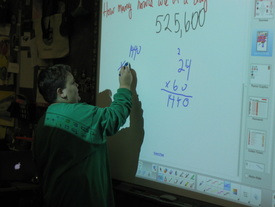 With more rigorous standards and more empowerment from our administrators, I'm getting to teach in more of the ways that I am comfortable. Math suddenly becomes more open-ended and problem-based in our classroom. I want to allow my students to discover and create their own problems, while at the same time addressing the foundational skills necessary to solve them. Soon we will work on something I have titles Problems to Solve - single problems that will keep a class busy for an entire Math period (I will explain more in an upcoming post.). At any rate, my hope is to spend some time, at the end of sessions like this, having students explain their reasoning to the rest of the class and sharing their solutions with their peers acting in a critical role. This will help us approach the eight Math Practices more effectively (also addressed in an upcoming post). I really look forward to digging deeper with this approach and facilitating the improvement posture of my students. Here's to going places in 2106! Our first real task of the new year was to "build something". Group dynamics, creativity, and safety were all factors of this initial lesson in Motion and Design, a unit in which I stress all of these things in addition to creating products while remaining within given parameters and fulfilling provided requirements.
They said teach with something called rigor, but they never told me what that meant. They said to use standards-based grading, but they never explained how. Through the decades, "they" said this and "they" said that, but they rarely made sense. It has truly been a struggle for survival. Admittedly, there have been times when persisting to retirement seemed unlikely. And I was not alone. In Joplin Schools, I am among a handful of teachers who have over 25 years of experience. Many have opted out, retired at the first opportunity, or moved to other districts. I'm not editorializing about the causes, but simply and truthfully stating my own situation. I cannot say I have positively supported every initiative our district has attempted to advance. There have been, at times, periods of flailing and plunging. I suppose that can be said of most careers. Happily, barriers are made to be busted (Well, that's probably not their actual purpose, but it sounded good when it was rolling around in my noggin.). What I mean to say is that when one hits a wall, one must stand back up, dust off one's backside, and press on. When you get burned out, you can stay on the ground, or you can punch through the storm. Finding my own path has always been one of my strengths, and when I started changing the things that worked for me in my classroom to attempt to comply with someone else's ideas of successful strategies, I found myself on the ground more and more often. After a while, it gets comfortable down there, and you get tired of pulling yourself back up. Now, I want to improve, specifically, many things:
I know what I want to do, but it's going to take time to get there. Just as I've taken 26 years to get to this point, it may take a few more years to achieve perfection (I just said that because it sounded like a high goal. Perfection? Who does this guy think he it?). Our family will SOAR as lifelong, innovative thinkers
who are compassionate, productive citizens. I am not interested in the complicated processes of teaching. With 26 years of experience, I have to consider that I am a veteran of the profession. In many cases, that means I am an expert and a mentor to less-experienced teachers. I am often amazed that people turn to me for wisdom, especially when I consider that I am always looking for ways to improve my own strategies. I've recently worked on the area in which I have felt most deficient - reading. I have always been a reader, and I never felt like I had to learn how to read; it seemed to develop naturally for me. I suppose it's a reverse of the old saying: those who can do, can't teach. I've felt like I've developed of my teaching skills, in regards to reading, mostly during the last couple of years. I know how odd that sounds. This year, I have constructed some "universal" worksheets to help guide students to find such things as main idea, theme, and structure. These have been helpful especially because they can be used with any text. Done repeatedly, with varying texts, these sheets may also display a student's improvement. But I do not like isolating skills. It's not the way I "learned" to read. I don't remember what Mrs. Williamson or Mrs. Young, my kindergarten and first grade teachers, did to teach the class how to read. At best, I remember them pointing to some words on a big piece of paper, something like "See Dick. See Dick run. Run, Dick, run." And fourth, fifth, and sixth grades happened to be the years I was turned off of reading: the push at that time (the 1970s) was to encourage speed reading. To this date I do not, will not, and cannot silently read faster than I read aloud. Nor do I want to. In short, I did not learn comprehension strategies. I was not encouraged to stop and ask myself for the author's purpose, inferences, and predictions. I did my share of book reports, but I relied on my natural abilities (and a bit of blowing smoke) to summarize the books and give my own recommendations. In retrospect, I probably learned more about plot, characterization, and point of view by writing (another subject that came to me naturally) than I ever did in reading. As a result, it has taken this long to put together some of my own methods. That's OK. I actually prefer developing my own materials and methods. I guess I've never taken instruction from other sources; call it bullheaded or stubborn if you would like (You only have to look at previous generations in my family to see that it comes naturally.). Now the challenge comes to develop some teaching skills in the area of Mathematics, as well. I've not felt that I needed to develop those skills as much. I had my share of struggles in Math when I was in elementary school, and I feel like I actually experienced learning. I struggled against teachers, algorithms, and my parents. I couldn't stand my third grade teacher, but my fourth grade teacher pushed me until I succeeded. My fifth and sixth grade teachers had horrendous class management skills, and I was more interested in girls than in learning fractions. I was able to get decent grades without really understanding the concepts. It was in a college course called Math for Elementary Teachers that I finally understood fractions! I think those growing pains helped me become a pretty good Math teacher. Those who can't do, teach, right? But now I may have become stagnant (for lack of a better word). I've changed my teaching to accommodate someone else's pattern, and that's not what works for me. I've tried to break up Math skills to the point that I'm teaching them in such isolation that my students have trouble applying the strategies I've given them. Somewhere along the way, I deviated from the methods that work for me, and I need to return to my roots. Recently, during my free time, I've done a bit of reading on my own in regards to a number of logical approaches, methods, and belief systems. Happily, I am finding that they often match my own way of thinking. Some of these include:
In our district, we have not focused in these areas. Sadly, I only know about these things because of discoveries I've made during my free time (or should I have been jumping through proverbial hoops during those times?). I'm afraid our school and our district has some learning to do in all of these areas. Hopefully with the first bullet above, the other bullets will develop. I'll continue to explore these and other educational topics as we move forward. Ultimately the goal is to be the best teacher I can be. Our school's target statement applies to students, teachers, parents, and community members: Our family will SOAR as lifelong, innovative thinkers
who are compassionate, productive citizens. |
AnthemThe Hoggatteer Revolution
is an extensive, award-winning, inimitable, digital platform for Encouraging and Developing the Arts, Sciences, and honest Christianity in the beautiful, friendly LAND OF THE FREE AND THE HOME OF THE BRAVE This site is described as
"a fantastic site... chockablock full of interesting ideas, hilarious anecdotes, and useful resources." 
...to like, bookmark, pin,
tweet, and share about the site... and check in regularly for new material, posted often before DAWN'S EARLY LIGHT! History in ResidenceElementary Schools: Bring Mr. Hoggatt into your classroom for a week of engaging and rigorous history programming with your students. LEARN MORE BUILDING BETTER
|
